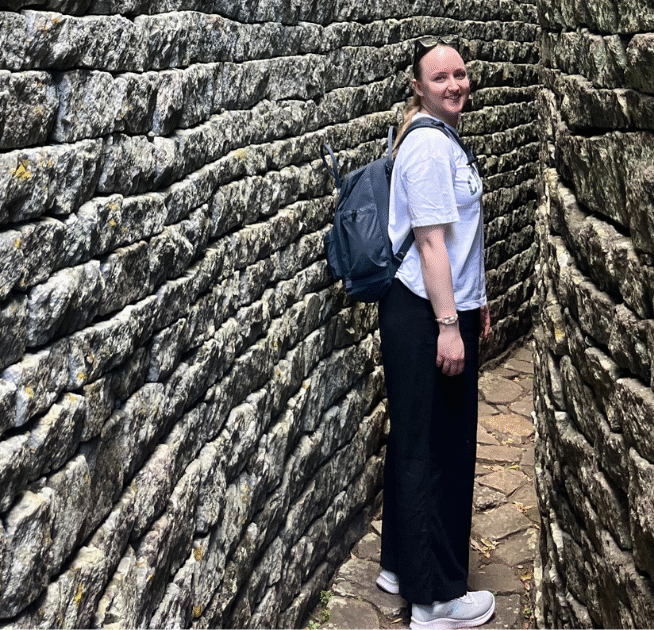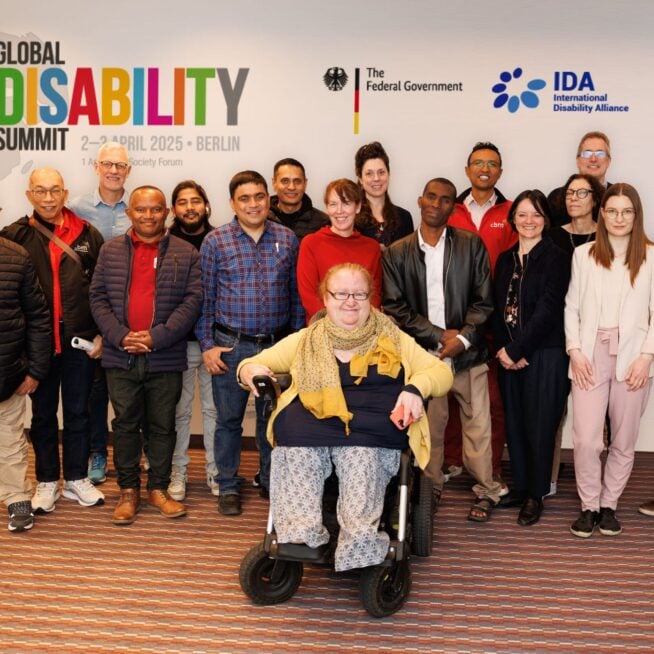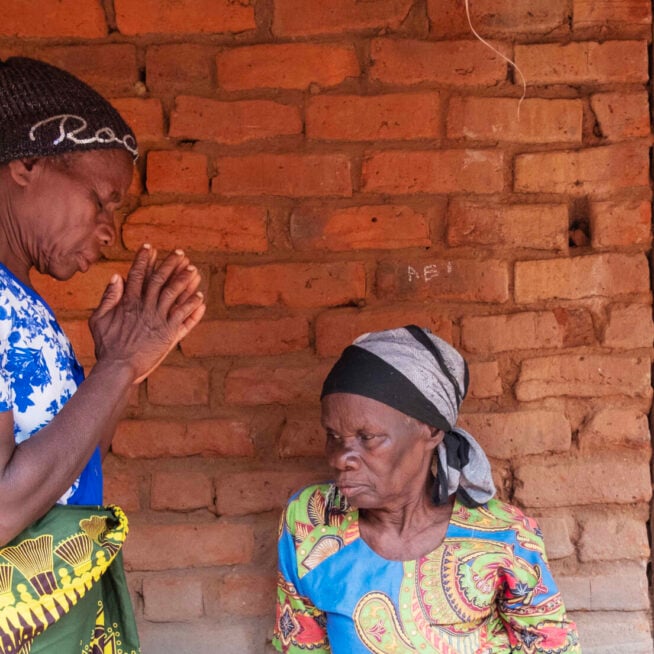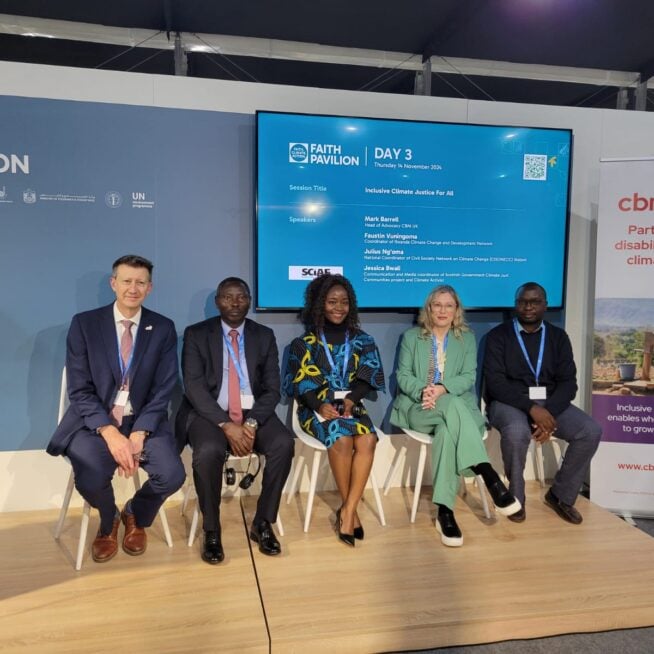Want to transform lives with us? Stay in touch and hear about our news, activities and appeals by email!
‘Disability does not mean inability’ Anne Wafula Strike ahead of the Rio Paralympics
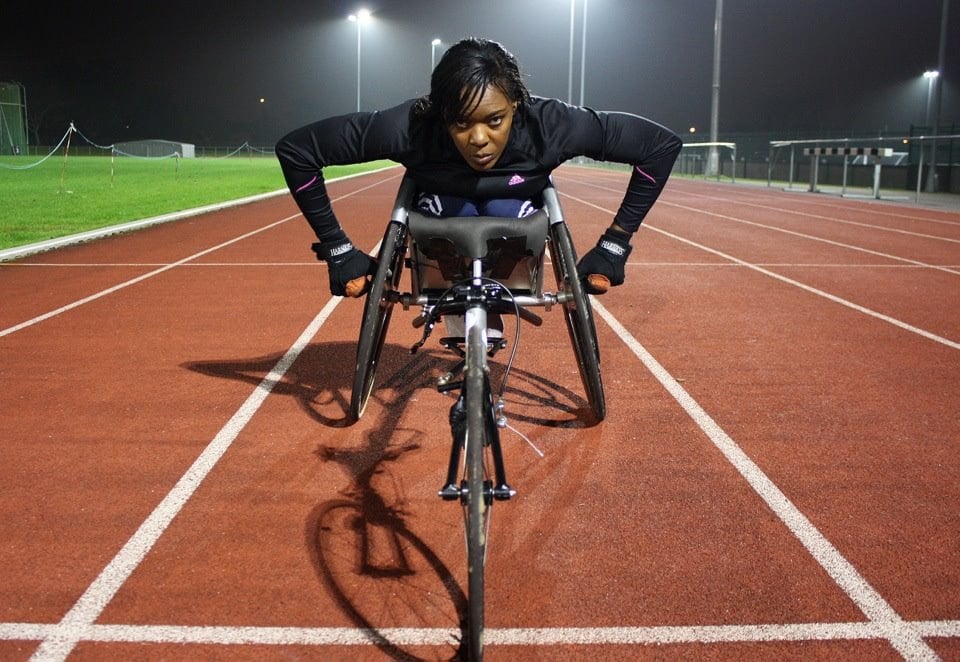
CBM champion and Paralympian, Anne Olympia Wafula was born in a small village called Mihuu in Western Kenya. She was a strong child that lived up to her powerful middle name but at just two-years-old, she was struck down by polio and left paralysed from the waist down. No one in the village understood her disability and the local witch-doctor claimed that Anne was the victim of “black magic”.
The villagers labelled her cursed and referred to her as a “snake” – due to the way she had to crawl around using only her upper body – saying that she should be left to die. Her family was forced to flee the village for the safety of their daughter and Anne was sent to a special school for the disabled which was located far from her home. Then, just when Anne needed her most, her mother died suddenly leaving her father to look after eight children alone.
In England, Anne defied what medical experts had told her was impossible by giving birth to her son despite her condition. Following the birth of her son, Anne stumbled across wheelchair racing. She turned out to be rather good at the sport and shortly after taking it up, received the remarkable distinction of competing at the Athens 2004 Paralympic Games becoming the first ever wheelchair racer from East Africa to compete in the Paralympics.
In 2007, Anne was officially recognised by the Queen at a Buckingham Palace reception for her work as a disabled athlete and for involvement in charity work for people with disabilities.
With just 3 days left until the Paralympics, Anne talks to CBM about the challenges she’s faced as a disabled person in Kenya and how the 2016 Rio Paralympics could have the power to make a lasting change in attitudes towards disabled people.
Interview with CBM UK
Why do you think it’s important for people with disabilities to take part in sport?
I think sport is important for people with disabilities because it can both improve their health and their self-esteem. The Paralympics in particular is great for raising awareness for people with disabilities as it enables the world to view them in a different way and makes them believe that they can overcome any obstacle if they work hard enough.
While sport has value in everyone’s life, it is even more important for people with a disability, because of the rehabilitative influence sport can have not only on the physical body but also on rehabilitating people with a disability into society and overcoming barriers.
You came to wheelchair racing quite late in your life, how did it make a difference for you?
Wheelchair racing has given me the opportunity to travel the world; USA, Australia, Germany, China, and many more, something I didn’t even dream of when I lived in Kenya. It also helped me to have belief in myself as a whole person, and to meet so many interesting people from all walks of life.
It has also helped me to support other African and GB athletes on their Paralympic journey, which is a great way to be allowed to give back to the sport – that is what really gives me a lot of joy and satisfaction.
I was privileged to be part of the group that helped set up a local sports organisation in Harlow called All Ability Sports & Leisure which works in partnership with the Harlow Athletics club and provides regular weekly sports activity sessions for people with disabilities in Wheelchair Basketball, Athletics, Boccia, Swimming, Trampoline and Multi Games. All Ability aims to really inspire people with different abilities to have active lifestyles for a more inclusive sports community and for some of them to one day hopefully achieve the Paralympic dream.
When you were growing up, did you consider that you could take part in sport?
No, never. As a disabled child in Kenya sport was for the other, able bodied children. The closest I ever came was to splash in a swimming pool, but no one thought it worthwhile to teach me to swim!
It was only after I gave birth to my son, and realised I had gone from a size 10 to a size 16 in just 9 months that I thought I ought to go to the gym, and then somebody suggested I should try disabled sport. I’d only started using a wheelchair when I became pregnant, but then in 2002, watching the Commonwealth Games in Manchester and seeing these amazing women with disabilities competing, I thought ‘Wow, this looks incredible – that’s what I want to do’ and so here I am!
You’ve experienced life as a woman with a disability in Kenya and in the UK. What are the main differences you’ve found between the two?
Well, the main difference is being able to use a wheelchair here in the UK. I never had access to one in Kenya, and was forced to use heavy crutches and steel callipers (leg braces) dragging or pulling myself along.
What I liked about the UK was the access I felt I had as a disabled person – some people were more accepting.
“I remember once being in a train station and really struggling on my callipers and crutches. One of the staff helped me get into a lift and said ‘we haven’t seen those sorts of braces and crutches for 50 years’ – which made me feel ancient!”
Mind you, the strength I gained in my upper body from those callipers made wheelchair racing a lot easier to adapt to. In Kenya, far too many people think disabled people have been cursed so they are frequently shunned and treated badly. Fortunately for me my father was determined I would be treated the same as my siblings so I went to school, then university, and became a teacher. Now that I live in the UK, I realise we have to battle different levels of stigma and prejudice, but in order to break down those barriers, you have to push the limits, and that’s exactly what I did.
Do you think that the Paralympics can help change attitudes towards disability around the world?
Yes I do because people can see how talented and hardworking disabled people are and that they are just as much athletes as the able bodied. They don’t rely on sympathy. They rely on their own willpower to achieve the best they can. The constant determination from disabled people over the years to show the world that disability does not mean inability is inspiring.
How do you feel about CBM’s support of the Rwanda women’s sitting volleyball team, the first African women’s team to participate in the Paralympics in this event?
I think it is fantastic, and can only inspire others to follow their lead. One of the main drawbacks for disabled people in developing countries is the lack of facilities and the extremely expensive cost of equipment. For example a racing chair costs thousands to make, and hundreds to maintain. However, in volleyball all they need is a ball, net, and the will to compete and win. I wish them all the best in Rio.
How do you feel about the differences in the support, training, equipment etc available to Paralympic teams from wealthy countries like the UK, and those from countries like Rwanda or Kenya?
How can athletes from developing countries possibly compete as equals when they have no access to any sort of equipment, let alone the latest Paralympic mod cons? I really think a lot more could be done to help make sport more accessible and affordable for people living in some of the poorest communities of the world.
Why can’t the many people who have become wealthy from sport give something back to those less fortunate? Perhaps if they led, others would follow.
How did your Christian faith affect your life as an athlete? And how does it affect the way you live your life now?
My Christian Faith is very important to me. I knew my talent and opportunity to take part in athletics at a high level was a platform given to me by God and I did not take any single competition for granted. I knew He wanted me to praise Him in my ability as an athlete. Even now, I do whatever I do in the name of Jesus because I know it’s Him who enables me.

